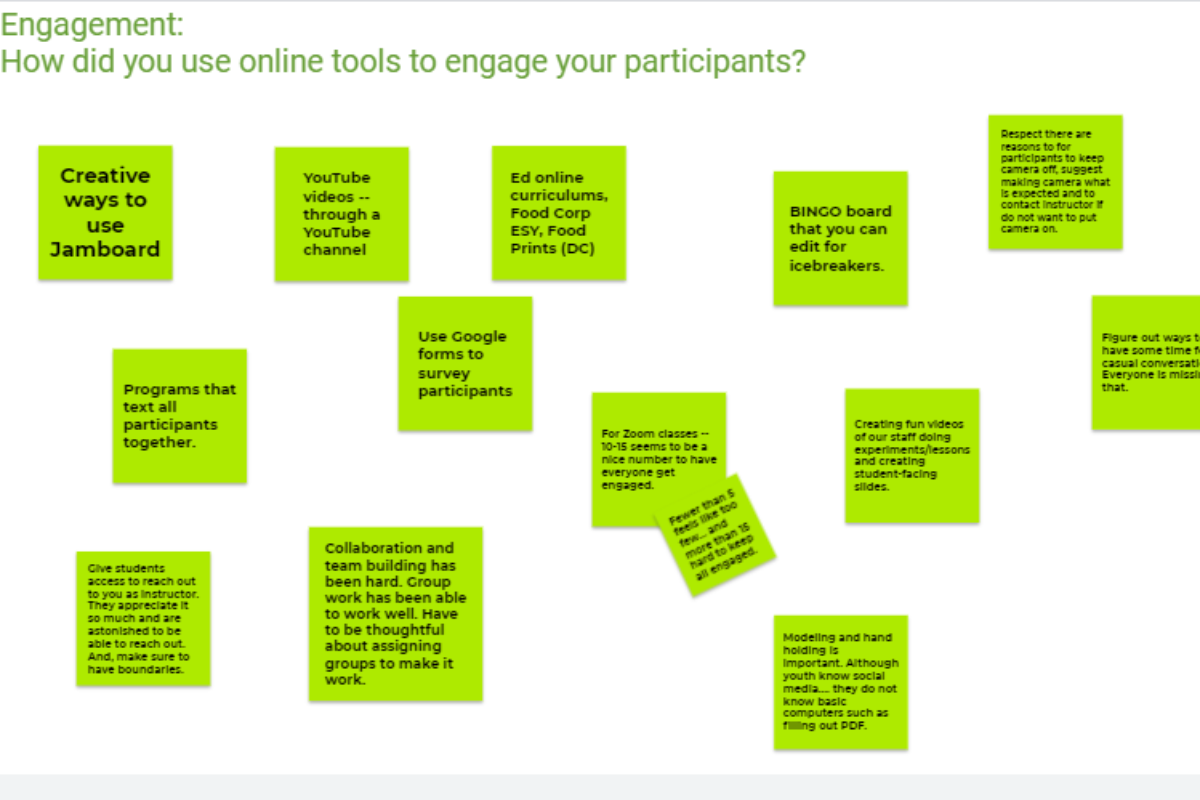Based on popular request from the Food Ed Coalition, the Tisch Food Center recently hosted an informal “coffee check-in” to share food ed best practices. The event was an opportunity to shine a spotlight on Food Ed Coalition members successes despite the challenges COVID-19 has presented.
During breakout sessions, Food Ed Coalition members chatted about which practices worked best, responding to questions such as “How did you recruit new participants and volunteers in the past year?” and “How did you use online tools to engage your participants?” Below are a few practical tips that members shared.
Participation
-
“For Zoom classes, 10-15 seems to be a nice number to have everyone get engaged.” Multiple members recommended classes of 10 to 15 students.
Engagement
-
“Ice Breaker Games are really helpful.”
-
“Having a moderator is key.”
-
“Modeling and hand holding is important. Although youth know social media.... they do not know basic computers such as filling out PDF.”
-
“Figure out ways to have some time for casual conversation. Everyone is missing that.”
-
“Incorporating small activity breaks into virtual sessions helped to improve participation by providing participants with an opportunity to stretch and take their eyes off the screen.”
Partnerships
- “Conducting a virtual cooking class with local pantries has been a fruitful partnership (pun somewhat intended!) with regard to ensuring participants have ingredients to cook.”
For more tips, see the Jamboard from the event here. The event showed that Food Ed Coalition members are overcoming COVID-19 challenges, continuing to provide food education and healthy food to communities.
